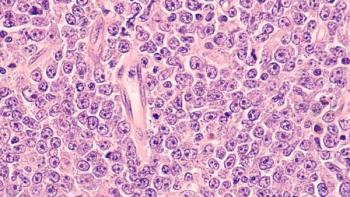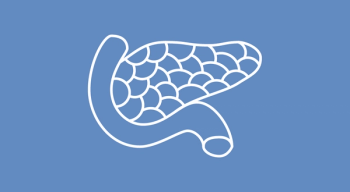
The FDA has approved subcutaneous daratumumab and hyaluronidase-fihj for use in patients with high-risk smoldering multiple myeloma.

The FDA has approved subcutaneous daratumumab and hyaluronidase-fihj for use in patients with high-risk smoldering multiple myeloma.

An oncology APP-led quality assurance committee identified key safety events across disciplines and specialties.

The frontline addition of cancer vaccine IO102-IO103 to pembrolizumab demonstrated an increase in PFS in patients with advanced melanoma.

Daniel Glidden, MS, PA-C, discusses key data oncology APPs should be aware of and how to start incorporating exercise in cancer care.

T-DXd plus pertuzumab improved PFS and DOR across HER2+ breast cancer subgroups, regardless of prior therapy or PIK3CA mutation status.

Disitamab vedotin/toripalimab improved PFS and OS vs chemotherapy in HER2-expressing advanced urothelial carcinoma, per phase 3 RC48-C016 data.

Treatment for patients with R/R multiple myeloma should be based on the individual patient and their history, said Lisa Hwa Christenson, DNP, APRN, CNP.

Among lymphoma survivors, a multidisciplinary intervention program had a beneficial effect on fatigue and aspects of health-related quality of life.

Twenty-year follow-up demonstrated continued imatinib efficacy in advanced GIST with doubled median overall survival.

Using gender-neutral language is the first step in making a safe space for LGBTQIA+ patients with cancer, explained Al Asante-Facey, PA, MBA.

Supervised physical activity, while feasible, was not shown to affect quality of life or fatigue in patients with metastatic cancer.

Paola Gonzalez, MPAS, PA-C, explains how third-party vendors shape insurance guidelines and what oncology APPs should know when navigating peer-to-peer reviews.

Korie Bigbee, DNP, explains the necessity of survivorship care and how to enact changes to make it more accessible to patients with cancer.

Dermatitis and lymphedema are among the most pertinent adverse effects of radiation to the breast, according to Alexa M. Lantz, MSPAS, PA-C.

La-Urshalar Brock, FNP-BC, CNM, describes tactics for managing dermatologic AEs in patients with breast cancer as part of a multidisciplinary care team.

Kevin Y. Chen, PharmD, MS, BCOP, CPP, discusses how next-generation sequencing improves biomarker testing and treatment planning in solid tumors.

Adding platinum-based chemotherapy to osimertinib improved overall survival vs osimertinib alone in EGFR-mutated NSCLC, even in high-risk subgroups.

Sevabertinib demonstrated robust, durable responses and manageable safety in both treatment-naive and pretreated patients with HER2-mutant advanced NSCLC.

A patient with breast cancer and generalized anxiety disorder was able to avoid an unnecessary mastectomy with virtual reality, said Kelly Preti, DNP.

A multisite advanced practice optimization model improved patient access through tailored interventions, including redistributing non-APP responsibilities.

The FDA has approved revumenib for relapsed or refractory NPM1-mutated acute myeloid leukemia.

BCMA-targeting ADC belantamab mafodotin was approved for use in patients with relapsed/refractory multiple myeloma after 2 or more lines of treatment.

Frontline lenvatinib, pembrolizumab, and chemotherapy did not lead to increased overall survival vs chemoimmunotherapy in patients with advanced ESCC.

T-DXd plus pertuzumab improved progression-free survival vs THP regardless of prior therapy, hormone receptor status, or PIK3CA mutations.

The combination of sacituzumab with pembrolizumab did not lead to a decline in physical functioning or quality of life in patients with metastatic TNBC.

Buparlisib combined with paclitaxel failed to improve overall survival vs paclitaxel alone for patients with PD-1/PD-L1–pretreated HNSCC.

Data from a large prospective study identified male and older patients as being more likely to develop CIP and 34% of cases to become chronic.

Adding zabilugene almadenorepvec to SOC chemotherapy and nab-paclitaxel was safe and effective in patients with metastatic pancreatic ductal adenocarcinoma.

Ivonescimab plus chemotherapy improved progression-free survival and response rates with manageable safety vs tislelizumab in advanced squamous NSCLC.

The DESTINY-Breast11 trial found neoadjuvant T-DXd followed by THP improved pathologic complete response vs ddAC-THP in high-risk, HER2-positive early breast cancer.